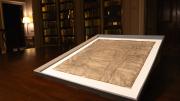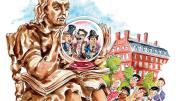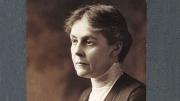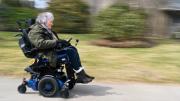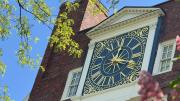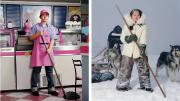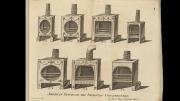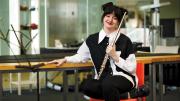1923
The College admits 940 applicants, its largest class ever. For the first time, those in the top seventh of their preparatory schools have been admitted without having to take entrance exams.
1928
Radcliffe College surveys its married graduates to find out “what sort of men its alumnae prefer to marry.” The answer is clear: 53 percent chose Harvard men, with MIT second (5 percent) and Yale third (2.5 percent). “Clearly,” the editors add, “undergraduate charm decreases with the square of the distance.”
1933
The editors report that “Interest in football seems to be at a low ebb in Cambridge,” a trend prevailing at other colleges as well. They speculate that the decline is due to a combination of students preferring to participate in athletics, rather than cheer on their classmates, and the possibility that elaborate rules and coaching make football “an uninteresting struggle.”
1943
The Bulletin adopts its own “fighting format” for the duration. Type size and paper weight are reduced, and alumni are asked to curtail their letters to the editor, because “there can now be no such gallant abandon” as in the extravagant pre-war days.
An Alumni Notes item summarizes newspaper accounts of the adventures of Lieutenant (jg) John F. Kennedy ’40 following the sinking of his PT boat.
1948
The Graduate School of Design joins the Schools of Education, Public Health, Medicine, Dental Medicine, and Public Administration in formally admitting women to its program, and the Crimson opens its comp to Radcliffe students.
1958
A new residential option, the Harvard Cooperative House—the first of its type at the College—opens at 3 Sacramento Street after more than 1,000 hours of refurbishing and renovations to the building. Future upkeep and other chores will be done on a rotating basis by its 29 residents.
1968
Columbia University student revolutionary Mark Rudd, on concluding a brief Cambridge visit, observes that Harvard students just don’t seem to have enough issues to protest about.
1983
Nuclear-disarmament activist Carla Johnston, the former deputy director of the Union of Concerned Scientists, becomes the first Peace Fellow at Radcliffe’s Bunting Institute.
